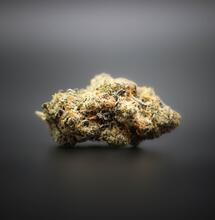Singaporean Man Receives Death Penalty for Cannabis

While cannabis decriminalisation and legalisation are becoming a reality in various parts of the globe, some countries still practice the severest form of punishment for violating cannabis laws. The case that most recently shocked the international community concerns a Singaporean man convicted of trying to smuggle a little over 2 pounds of weed into the city state and was executed on Wednesday, April 26. A report from Harm Reduction International (HRI) suggests that the number of people executed for drug offences surged in 2022.
Tangaraju Suppiah, a 46-year-old man from Singapore, received a death sentence on Wednesday in Changi Prison, according to a brief statement from Singapore Prison Service. The case marks Singapore's first execution in six months.
The man received the capital sentence back in 2018 for "abetting the trafficking of more than one kilogram of cannabis (1,017.9 grams)". The court found he communicated with two other men who were as well alleged for trying to sneak pot into Singapore.
The man's sister, Leelavathy Suppiah, confirmed in statements for the media that her brother had been hanged and that her family had received a death certificate.
The severity of this punishment was met with a huge backlash from human rights groups and campaigners. The offices of the United Nations and the European Union based in the city-state had also called for Singapore not to proceed with his hanging.
Cannabis has been legalised in a growing number of countries. However, Singapore maintains some of the harshest drug laws around the world. Its government believes that the death penalty successfully helps prevent drug trafficking and that current drug laws should remain in place to protect the public.
The Transformative Justice Collective (TJC), a local abolitionist movement, highlighted "serious problems" with evidence used to charge Tangaraju, describing it as "shockingly thin".
"The case against Tangaraju is largely circumstantial and based on inferences", TJC said in a series of statements.
"He never touched the cannabis he was accused of attempting to traffic. He was tied to the offence by two phone numbers found on the mobile phones of two men arrested by the CNB [Central Narcotic Bureau] – one of which had been used to coordinate the cannabis delivery".
"Tangaraju was already in remand for a separate offence by the time he was linked to this case – and his mobile phones were never recovered for analysis", the group added.
Singapore is not the only place that practices capital punishment to subdue drug traffickers, however. The Harm Reduction International (HRI), a non-profit organisation tracking global drug executions since 2007, estimates that at least five other countries still carry out the death sentence for drug-related charges as of 2022. All of them are in Asia, and include Saudi Arabia, Iran, China, North Korea and Vietnam.
According to HRI, the worst year on record was 2015, when the organisation counted 755 cases where people received the death penalty for drug convictions. The figures dropped dramatically for a few years, going under 100 in 2018, only to start rising again and reach close to 300 last year. Due to a lack of transparency on many cases, it is unclear how many of them involve cannabis.











